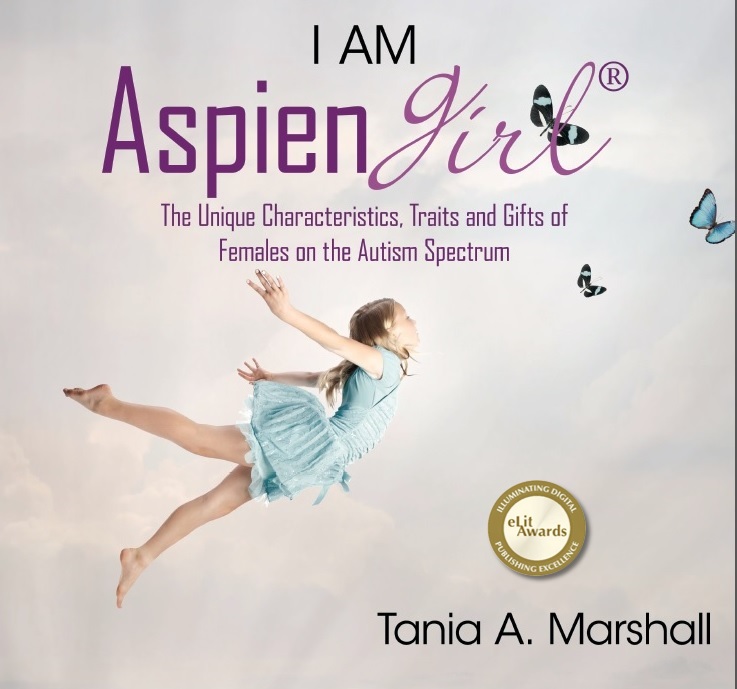There is a growing awareness of girls and autism, particularly due to the research of Dr Judith Gould and Dr Jacqui Ashton Smith.
After having Michael Barton in school last year to work with parents/carers and students and talk about his amazing books, I was delighted to find this book written specifically for girls by Tania A Marshall. We got a few copies, and rather than hear me talk about it – one of our Year 11 students, Megan decided she would write a review!

The book ‘I Am Aspien Girl’ by Tania A. Marshall is a non-fictional novel about people’s lives with the disorder of high functioning autism and Asperger’s Syndrome.
The format text of this informative book is an easy to read format that many different ages can read and it includes entertaining pictures which gives it a more child friendly look to the book but means that adults would still enjoy reading it and be interested in it.
This book is filled with fascinating facts about disabilities such as high functioning autism and how the parents, the children, the psychologists and the teachers coped with it and it showed quotes from the people themselves to put you in their shoes.
A quote that stood out for me is ''She has a ‘strong will’ and ‘limitless determination’ to achieve what she sets her mind on, and occasionally her will is to her detriment.''
This relates to me because I am a very determined person with a strong will which means sometimes I will get stuck doing a task and won’t move on which can mean I miss out on things.
It would help people who already have these disabilities to read the book as it would help them to see how other people handle being on the spectrum and coped with it and they could also read the book if they are unsure if they are on the spectrum to see how they compare to people in the book.
It would be good for parents to read this book so they can see how other parents have coped with their children who are on the spectrum and the experiences they have had.
It is comforting for both parents and children to hear that other children and parents around the world go through the same thing so they are not alone in the world. People like the teachers or psychologists who work with children with Autism or Asperger’s Syndrome would find this an informative and educational book to see more into the mind and life of people with these disabilities. It would educate them and give them tips taken from what other teachers and psychologists who work with these children and use this information to improve how they work.
Overall, I thought this book was a well-designed, informative book for all ages. It reminded me of how my Autism works in my mind and showed similarities between these people and me. It made me feel rather positive about my Autism, because it showed me that my Autism is part of me and without it I would not be me anymore.
Dear Megan, thank you for taking the time to read and review my book. You are certainly quite articulate and write well. It was a beautifully written review and I am most appreciative of the time it you took to both read and review my book. If I have helped one young person such as you, then I have done my job. You should be proud of yourself!
Thank you again and here are a couple of comments by others on your review after I posted it on Facebook.
Some comments from others after I posted it on Facebook included:
Thank you, Megan.
Kindest regards, Tania